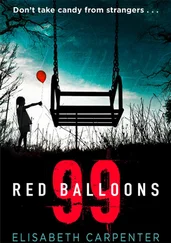During the long winter months, he wore a sweater and thin wool gloves all the time, even when he slept. The dull yellow walls were stained brown where water had leaked from somewhere above. The floor was rough wood, but that didn’t matter much because it was so cold that he rarely took off his shoes. There was no lock on the door, but he didn’t worry because he owned nothing worth stealing. Down the hall was the only bathroom on the entire third floor, and it was shared by thirty-one other residents of the hotel, both men and women, each having to wait to take their turn. Finding the bathroom unoccupied was rare, so Sorgei found a discarded one-gallon tin can and kept it under his bed for emergencies.
One bitter winter morning in February 2000, after leaving work at the store, he walked to a coffee house he used to frequent when he was studying at the university. A tiny bell above the door announced his arrival as he stepped inside, and it seemed that every person turned to look at him. In their eyes he sensed the despair. A political change of this magnitude had reached deep into society and rocked the lives of many of the most educated. Men and women who once had bright futures were now wondering how to make their way through life.
He took a seat at the counter and decided to spend a little of what he had left. “Black, please,” he said to the waiter. Soon, the steaming cup appeared, and he gripped it with cold fingers, then pressed it to his lips. It felt good going down. He closed his eyes and savoured the feeling of the warm liquid melting its way into the cold cavern of his body.
An olive-skinned man took a seat on the counter stool next to him and spoke in a quiet voice. “Are you Sorgei Groschenko?” It was a voice with a foreign accent – an Arab accent, if Sorgei were not mistaken.
May 1984 – Lashkar Gah, Afghanistan
The western horizon was red as embers, the colour coming from a combination of dust-filled sky and setting sun. In the east the moon would rise soon, appearing, as it were, out of the ground full and round and red. It was an omen; at least it seemed like one to Najia, as she lay sweating on a table in a little room, waiting for the midwife.
A bitter cramp gripped her abdomen and she cried out, but muffled her scream with her own hand cupped across her mouth. No one must hear her anguish. It was too dangerous. Already, her father was waiting to catch her if she came home. But she was not going home. She had not been near her family’s house for more than three months, ever since her pregnancy started to show. Unwed mothers were not only a burden, they were also a shame in this society – a dishonour that was made to disappear. It happened before; she heard the stories. They were called honour killings, and they were normally carried out by the father, brother or uncle of the offending girl. The usual method was to slit the throat, a form of blood sacrifice that was meant to restore the lost honour to the family.
The midwife was an older girl, a friend of a friend who agreed to see her through the birth. Najia was thankful for her friends, even though she could not stay with them because they were known to the family and their homes were the most obvious places to look for Najia. It would place them in danger if they were caught harbouring an unwed pregnant girl. So it was friends of her friends, older girls who were out on their own, who shared their rooms and food with the unlucky Najia, quietly pitying her for the terrible situation she was in.
These girls were a true blessing. They were all at risk, if word of this got out, so everything had to be done in secrecy. The one who would be her midwife had been through this very thing herself, giving birth to a child when she had no husband. An older woman helped her through the ordeal, just as she would now help Najia. Even though it was illegal, even though it was forbidden and considered immoral, there was a covert sisterhood among the women that reached beyond what was socially acceptable. Nobody spoke of these things, yet when the need arose, there was always someone there to lend assistance.
The room was an empty storage space at the back of an old machine shop that went out of business. It smelled of grease and oil, and the dirt floor was stained black from years of soaking up spilled fluids. Najia was told that this was the place, and so she had come. She waited for more than an hour, lying alone with her pain and fears on a table that was nothing more than a scrap of oil-stained plywood laid over some old wooden boxes. It was the longest hour of her life as she lay waiting in the dark corner of this hidden room on a backstreet of Lashkar Gah – waiting for the girl, her midwife, hoping she would not abandon her just as the baby’s father had.
A shadow crossed the doorway, and a black shape stepped inside. The girl said nothing as she walked to the table and removed the veil from her burkah. Najia smiled at first, then grimaced and clasped her hand across her mouth as another contraction swept over her. The girl rested her hand on the swollen abdomen and spoke soft words of comfort. “You will get through this. I will help you. Relax and let the baby come to us.”
Outside, the end of the day had come. The sky turned a deeper, darker red.
On the table, blood and water spread across the bare plywood and spilled onto the floor. Najia struggled through the pain. The baby began to come, then seemed to hesitate, and the young mother gasped for breath, but it was as if there was not enough air.
In the west, the sun died at the very moment that the moon appeared in the east.
* * *
“We will name him Husam al Din,” the old man said, as he took the baby in his arms. “Sword of the Faith – it is a good name, and we will train him to fulfill his destiny for the faith.”
“It is a tragedy,” the girl said. “To be alone in the world without mother or father. He will be in good hands here at the madrassa orphanage.”
“Husam al Din,” the old man smiled. “Yes, it is a good name. I can see it in his eyes. Too bad his mother died in childbirth, after losing her husband in battle with the Soviets, as you said.” He probed the girl’s face with his eyes.
“Yes.” She turned her eyes to the floor in an attempt to hide the lie. “Yes, that is a tragedy.”
“And no other living relatives, you say?”
“None.” She regained her composure and looked him straight in the eye this time. “The madrassa is the only chance for him.”
“Then he will have his chance,” the old man said. “I will personally see that he has the best education.”
“Thank you, Imam Waziri,” she said, “may your life be blessed.” Then she turned and left.
* * *
Five times each day, the call to prayer brought everyone to his knees. From the time he was old enough to walk, Husam al Din had his own prayer rug, and he kept it rolled and close to him at all times. The worst thing he could think of was to be caught without the prayer rug when the call to prayer was sounded. The mat kept him clean as he stood and knelt, placing his hands and his forehead on the ground. Being clean for his prayers was an absolute necessity.
Five times each day, beginning at dawn and extending until about two hours after sunset, prayer was the pattern of life for him, and he had known nothing else since his birth. The ritual pleased him. It was comforting to have no question about what he was to do with his time, and to know that no matter where he went somebody kept track of the time and issue the call to prayer at just the right moment. Then all he had to do was to unroll his rug, place it on the ground with the niche facing in the direction toward Mecca and begin the Salaat, his ritual prayer.
Читать дальше












